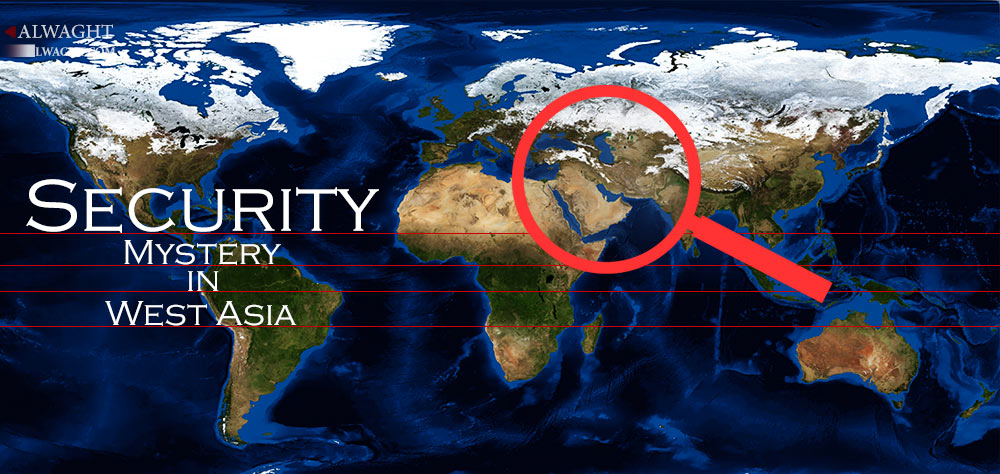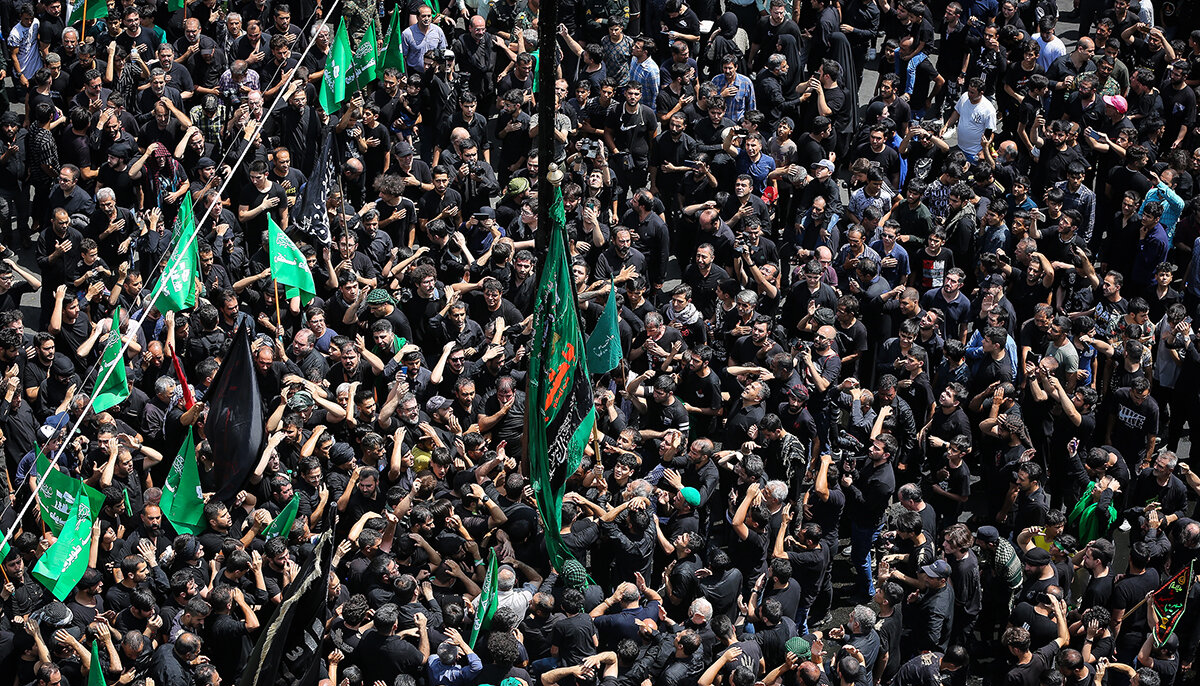Alwaght- Since rise of the official nation-states in West Asia, the region became a flashpoint of a slew of long-term conflicts and tensions. Between 1962 and 1995 over 40 conflicts took place in the region. Now West Asia is grappling with terrorism as world's largest challenge.
The evolution and formation of West Asia in the form of present-time language community was always accompanied by crisis. Due to its linking roads, energy reserves, imperialism-led experiences, and cultural conflicts with the foreign world, West Asia has a realistic atmosphere with its security tied to security of the governments and security of the regions around.
Such features never brought to the region peace and stability. At the present time, such phenomena as popular campaigns, terrorist movements, and the deep gaps between the nations and the governments have made instability outstrip peace, and all of normal and daily-life issues take a security color. In these conditions, assessment of the upcoming opportunities and threats is of high significance for the governments because distribution of power is no longer defined as before.
The question that presents itself is that is conflict the indispensable feature of the West Asian region? Without doubt, the answer is worth pondering because the region has a long history of ups and downs, and an absolute black or white answer is certainly not accurate. Of course, West Asia carries the potentials for booming, however, the historical conflicts should not be kept out of mind. The region is now living crises like rise of ISIS terrorist group that in a blink of an eye covered the whole of it and it is hard and time-taking to deal with it. That the West Asia security mystery is not solved by security solutions has an array of reasons including:
Inefficiency of the existing regimes and organizations
Certainly, the opposite point of security is the security regime, a model from which West Asia never had a stable and successful experience. In other words, the political and security organizations and alliances that so far appeared in West As have failed to guarantee lasting security in the region.
The nature of unions and alliances like coalition between Persian Gulf Arab states, as well as the alliance between the Arab states and the US have roots in interests of the governments and are based on a desire to create a deterrent power. Even Islam as a religion has failed to develop a collective and shared identity for the West Asian countries because the political Islam in the region has a variety of takings and interpretations such as the conservative and conventional Islam of Saudi Arabia, the sociopolitical Islam in Turkey, the Shiite Islam, and the fundamentalist Islam.
Conservative structures
On the other hand, perhaps it can be asserted that the most conservative governments of the world are existing in West Asia. They barely show flexibility in response to changes. The strongest resistance to change was observed in recent years following the Arab uprisings of 2011. In fact, West Asia conventionally has strong kingdoms and governments with old-line leaders. This in part leads to closed political scene, governments, and political organizations. The traditionalist regimes in the region responded severely to any waves of change. This rejection led to spark of crises that did not stay within security borders of a single country and spilled over to other countries of the region.
Fruitless international interventions
Since foundation of countries of West Asia with their modern day form, the international powers played a major role in imposing on the region a new order and security equations. But these efforts, however, did not lead to establishing a security regime and settlement of the security mystery. In many cases, the security mystery is actually kept standing by the international powers themselves. In fact, it has been high on their agenda. The biggest and longest intervention is certainly the US intervention in Iraq after toppling the former Iraqi dictator Saddam Hussein, and also the intervention of the US-led International military coalition in Syria. In both cases, no stabilizing security regimes were introduced to the region. On the contrary, the conflicts went even more complicated.
The increased interventions of the military in civil issues and increase of militant groups in West Asia are part of main reasons behind appearance of tendency for fighting in the region. Furthermore, realistic approach and militarized views have not been successful so far in addressing the security mystery. The best justification for this claim is the military interventions in Iraq, Syria, and Libya. The interventions not only declined to result in long-term stability but also they produced new tensions, making them practically torn-apart countries. Militarily, the powers have tried to create a weapons market and keep an unceasing supply of their arms to their persistent purchasers. In realistic view, the theory that a security challenge of a country can be addressed by maximizing the military power of the country leads to other problems. Because not all of the countries can grow at the same rate, or if security of a country is achieved at expense of another country, this would have no result but crisis and ongoing security mystery.
All in all, the structure of order in West Asia is anarchistic. There is no superior power in the form of a regional institution or organization similar to those in the EU and the West in general. All countries are seeking beefing up their power in its realistic form. By doing so, they are only pushed towards a balance of power. To put it another way, they are involved in conditions of comprehensive balance. On the other side, the international interventions not only failed to help improvement of the conditions but also pushed them to worsening. Even more, the domestic and structural setbacks of the regional countries themselves should be added to other trouble-making factors.



























